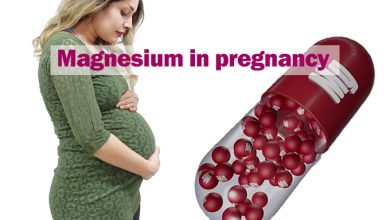Omega 3 in pregnancy and its amazing effect on fetal intelligence
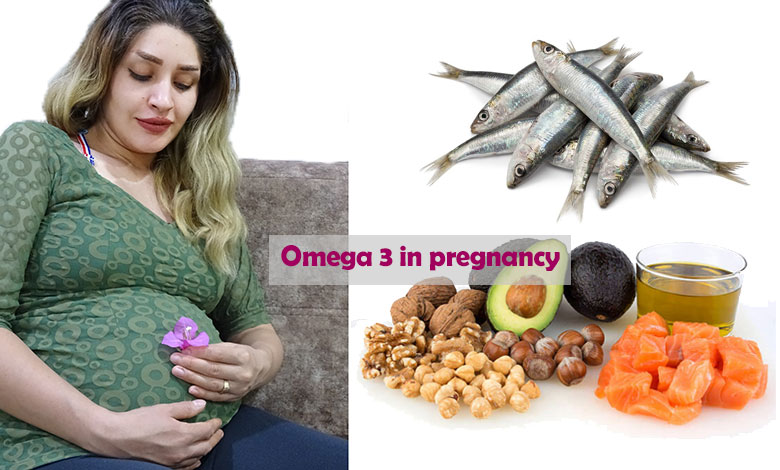
Omega-3 fatty acids in pregnancy are among the essential nutrients that must be present in a person’s diet; Because they form the vital building blocks of the fetal brain and retina. Additionally, omega3 fatty acids may also play a role in determining pregnancy length and preventing perinatal depression. Eggs and fish are major dietary sources of omega-3s.
However, recent studies show that fish consumption is very low in most pregnant women around the world and that is why they are not getting enough omega-3s.
In this article, we are trying to introduce the benefits of consuming omega-3 during pregnancy for the mother and the fetus, its harm, the permissible dose, and foods that contain this nutrient. Stay with us.
Related article: when to start taking prenatal vitamins
Benefits of consuming omega 3
Omega-3 fatty acids are essential fatty acids that must be present in sufficient quantities in the diet of pregnant women. Consumption of Omega-3s during pregnancy helps develop vital brain and eye cells of the fetus. Additionally, omega-3s play a role in determining the length of pregnancy and preventing perinatal depression (perinatal depression is one of the most common complications of pregnancy that can continue even after delivery).
The most biologically active forms of omega-3 fatty acids are docosahexaenoic acid and eicosapentaenoic acid, which are obtained mainly from marine sources, such as seaweed and algae. However, most pregnant women do not get enough natural sources of omega-3s.
One of the main reasons for the decrease in fish consumption among pregnant women is concern about the adverse effects of mercury and other contaminants that can be present in the tissues of marine organisms. On the other hand, omega-3s may help reduce the risk of heart disease during pregnancy, increase the strength of the mother’s and fetus’ bones, and reduce some types of cancer.
Benefits of omega 3 for the fetus
Consuming omega-3s during pregnancy has a major effect on the rapid development of the baby’s brain, nervous system, and eyes. Omega-3 intake during pregnancy underpins a child’s learning abilities after birth and throughout life.
Research has shown that the potential long-term benefits of taking omega-3s during pregnancy include:
- Healthy baby weight at birth
- Reduce the risk of preterm birth
- Reduce the risk of your child getting eczema later in life
- Healthier and stronger bones.
Additionally, research shows that omega-3 use is especially important in late pregnancy and in the first few months after birth. Also, in addition to supporting a baby’s health and development, omega-3s also help reduce the risk of prenatal and postpartum depression.
The effect of omega-3s on DHA
This is likely due to the formation of healthier cell membranes that allow serotonin to flow better between cells, But the exact reasons are still not entirely clear.
Research has shown that children whose diets contain high amounts of essential fatty acids have an advantage over others in terms of early growth. Also, researchers found that babies born to mothers with high blood levels of the omega-3 fatty acid docosahexaenoic acid (DHA) achieve higher levels of attention and learning by their second year of life.
In addition, during the first six months of life, these babies were two months ahead of their mothers with lower levels of DHA in terms of intelligence.
This confirms the growing body of evidence that DHA plays an important role in brain development. DHA in omega-3 is important for a child’s developing brain, especially in the first two years of life. But compared to the rest of the body, the role of omega-3 in the brain and nervous system of the baby is not fully understood.
Is there omega-3 in breast milk?
Omega-3 is found naturally in breast milk and is now added to infant formula and some baby foods. Atlantic salmon, Pacific fish, tuna, and algae-derived DHA supplements are some of the best dietary sources of omega-3 fatty acids. In a study involving 70 mothers and infants aged 4, 6, and 8 months, infants were tested for visual learning ability.
This experiment included showing pictures and recording the babies’ reactions. The researchers found that babies born to mothers with higher blood levels of DHA scored better on tests of attention by 6 months. In various tests designed to measure visual learning, older infants also scored better at 12 and 18 months, indicating the importance of maternal omega-3 intake during pregnancy.
Disadvantages of consuming omega 3
Consumption of fish oil and other omega-3 supplements during pregnancy is generally safe because, during the production process, environmental toxins such as mercury are purified from them. Omega-3 supplements are available in liquid, chewable, and gel forms.
But before consuming them, it must be ensured that the selected brand of omega-3 supplement is safe, high-quality, and approved by the Food and Drug Organization.
It is important to note that cod liver oil (not fish oil), while a good source of DHA, should be avoided during pregnancy, as cod liver oil contains a type of vitamin A that can cause birth defects, especially in the first trimester.
Also, while it is recommended that pregnant women be encouraged to consume salmon in their diet, it is still unclear how much DHA a pregnant woman needs.
In which fish and aquatic animals is omega 3 found?
What we can now say is that pregnant women do not get enough omega-3s in their diets, while there is a significant relationship between DHA omega-3 levels during pregnancy and the behavioral performance of the baby. But the consumption of all types of fish, oysters, and other aquatic animals may have risks during pregnancy due to the possible risk of mercury contamination.
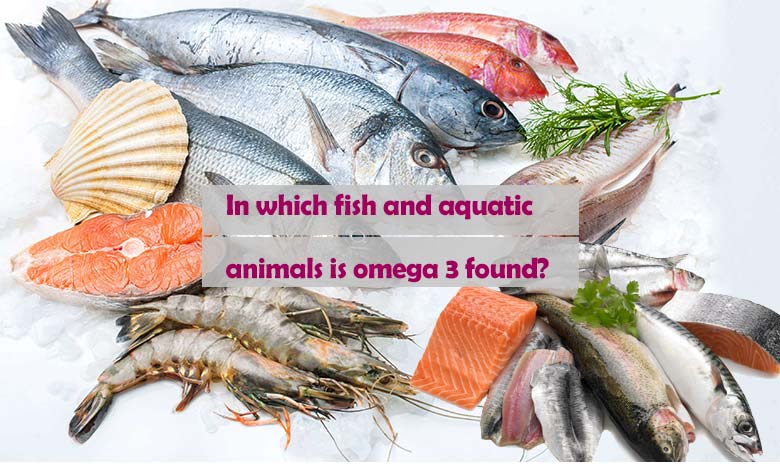
For this reason, the Food and Drug Administration recommends using low-mercury fish such as shrimp, canned tuna, salmon, pollack, and catfish during this time.
Additionally, while salmon is not a problem in terms of mercury contamination, concerns have been raised about unsafe levels of the toxic chemical dioxin and polychlorinated biphenyls (PCBs) in farmed salmon.
PCBs are linked to cancer and birth defects. Other than these cases, there are some general and mild side effects caused by consuming omega-3 supplements, including a bad taste in the mouth, bad breath, heartburn, nausea, stomach pain, diarrhea, headache, and smelly sweat.
When is the best time to take Omega 3?
In general, pregnant women are recommended to start taking omega-3 supplements from the 12th week of pregnancy. Because omega-3 fatty acids act on the same biochemical pathways as NSAIDs, taking a fish oil supplement in the evening can help you get out of bed easier in the morning.
What is the allowed amount of omega 3 consumption in pregnancy?
The optimal daily dose of omega-3s for adults is between 500 and 1000 mg, and the optimal dose of omega-3s in pregnancy is around 300-600 mg.
While pregnant and breastfeeding, eating 8 to 12 ounces of fish and other shellfish per week can improve your baby’s health. However, it’s important to choose fish that are higher in omega-3s and lower in mercury. For example, salmon, herring, sardines, and salmon are useful and safe fish.
But it is not known whether the consumption of dietary supplements containing omega-3s while pregnant or breastfeeding affects the health or development of the baby or not.
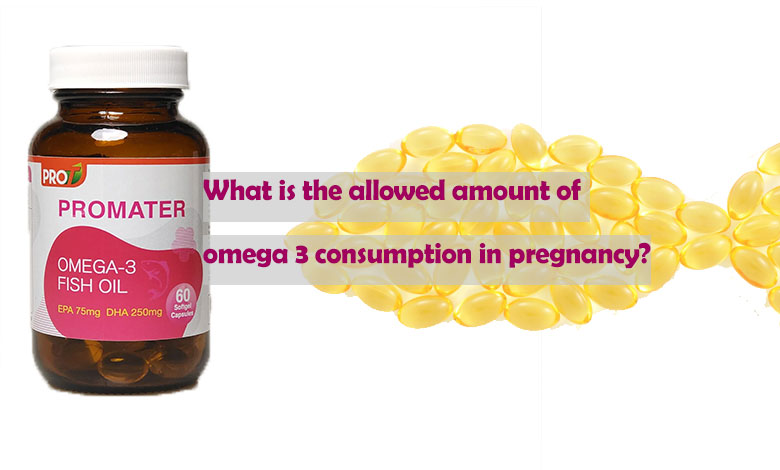
However, some studies show that taking these supplements may slightly increase your baby’s birth weight and the length of time your baby is in the womb.
The Food and Drug Administration (FDA) states that it is safe to take omega-3 supplements that contain EPA and DHA below 3,000 milligrams per day. On the other hand, the European Food Safety Authority (EFSA) notes that up to 5,000 mg a day of omega-3 supplements are safe.
What foods contain omega-3s?
Omega-3 fatty acids are found in foods such as fish, canola oil, flaxseed, and fish oil supplements. Omega-3s occur naturally in some foods and are added to some fortified foods.
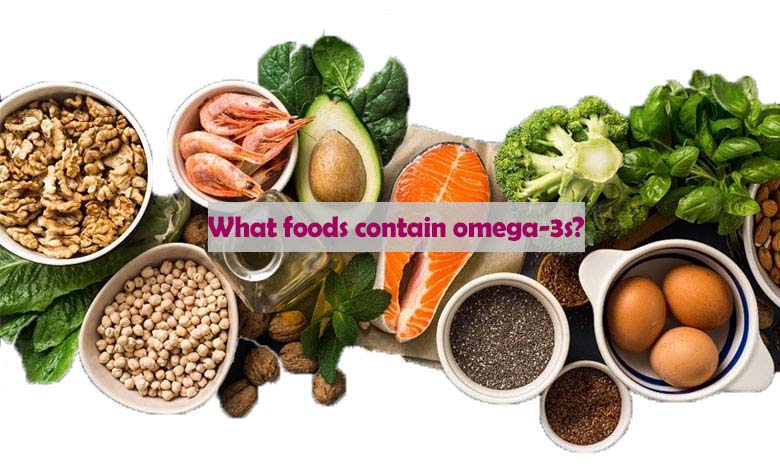
Adequate amounts of omega-3s can be obtained during pregnancy through the following foods:
- Fish and other seafood (especially cold-water fatty fish, such as salmon, mackerel, tuna, herring, and sardines)
- Nuts and seeds (such as flaxseeds, chia seeds, and walnuts)
- Vegetable oils (such as flaxseed oil, soybean oil, and canola oil)
- Omega-3 fortified foods (such as fortified eggs, yogurt, juice, milk, soy beverages, and infant formula)
What is the importance of consuming Omega 3?
As mentioned above, omega-3s are essential for a child’s early neurological and vision development. However, the standard Western diet is severely deficient in these vital nutrients. Omega-3 deficiency in pregnancy is important because the fetus uses omega-3s to develop its nervous system. Of course, omega-3 is also produced in breast milk after birth, but with each pregnancy, mothers become increasingly deficient in this essential substance in their bodies.
Research has confirmed that adding omega-3s to the diet of pregnant women has a positive effect on the child’s visual and cognitive development and reduces the risk of developing allergies in infants.
Omega-3 fatty acids also prevent preterm labor and delivery, reduce the risk of preeclampsia, and may increase a baby’s birth weight. Omega-3 deficiency also increases the risk of maternal depression. This may explain why postpartum mood disorders increase and become more severe with subsequent pregnancies.
In addition to being essential for a child’s immune system, omega-3 fats also help blood clotting. Omega 3s help the body use vitamins A, D, E, and K. For this reason, high-quality pure fish oil supplements containing omega-3s should be included in the diet of women before and during pregnancy, as well as while breastfeeding.
Therefore, omega-3 fats are called essential fats which cannot be synthesized by the body and must be obtained through diet or supplements.
Women should start taking natural or supplemental omega-3s at least six months before pregnancy with a prescription, and also keep in mind that multiple births can completely deplete the mother’s supply of omega-3 fatty acids, especially DHA.
According to the American Pregnancy Association, tuna is the healthiest fish to eat while pregnant, in terms of mercury contamination, etc.
In any case, it should be remembered that it is also important to maintain a sufficient level of omega-3 during pregnancy, as this substance is reduced in the mother’s body during pregnancy and is selectively transferred to the fetus.
The greatest amount of brain growth occurs in the third trimester and DHA is transferred from mother to baby at the fastest rate at this time, which is necessary for optimal development of the baby’s brain, eyes, immune and nervous systems of fetus.
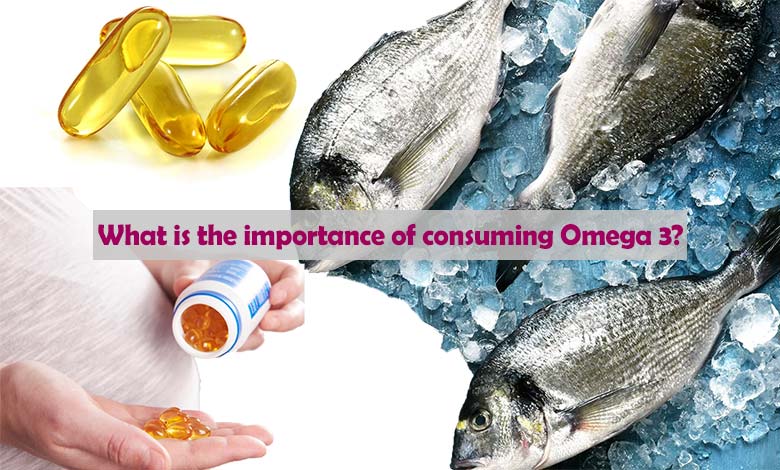
But it can weaken the mother’s body and put her at risk for problems related to a lack of essential fatty acids, such as extreme fatigue and postpartum depression.
It should be noted that low levels of DHA in the brain are associated with cognitive deficits and increased behavioral indicators of anxiety, aggression, and depression in children. Fish oil is a safe and natural source of DHA, ideal for consumption during pregnancy and while breastfeeding.
Studies have concluded that fish oil may be an even healthier source of omega-3s than fish because environmental toxins can be removed by fish oil.
What are Omega 3 food supplements?
And finally …
Omega3 fatty acids are essential for neural development in the fetus and may also be important for pregnancy and birth weight. Most pregnant women probably don’t get enough omega-3 fatty acids. The main dietary sources of omega-3s include a variety of ocean fish, salmon, egg, and fish oil supplements.
